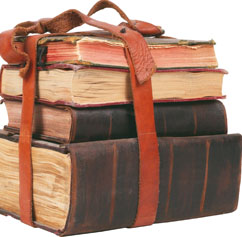Thomas Beckett, a draughtsman at the Air Ministry in York, had a plan of RAF stations in the area in his inside jacket pocket. When confronted with that, at a police station on Wednesday afternoon, July 10, 1940, he admitted he was wrong to have it in his possession – carelessness, he said.
Earlier, in a search of a works cupboard, police had found in his part of it an up to date list of 600 RAF stations around the Empire. This was ‘highly secret’ and of value to the enemy.
At York Assizes on November 7, 1940, Beckett, aged 34, was jailed for three years. He was guilty of an offence under defence regulations made at the outbreak of the Second World War; and the Official Secrets Act that as a government employee he had signed.
As in so many court cases, questions not to do with the charges were left uncovered. What was he proposing to do with them, court did not ask or have answered; there was no evidence that Beckett had any contact with enemy; leaving unanswered whether Beckett was – as MI5 the security services asked in the file, an espionage case; or a careless civil servant who had resigned from the British Union of Fascists (BUF) in 1939.
Nor did the story end there during wartime. From Parkhurst Prison came a report that Beckett – an asthmatic who also suffered from boils – boasted untruthfully of contacts with Germany, and was anti-British and a ‘malcontent’. How dangerous was this man? MI5 said it was ‘impossible to estimate from the information before us’, but felt ‘it would be taking an undue risk to release him’ after his three year term. Beckett was duly detained in November 1942 under defence regulation 18b, as hundreds of other fascists had been.
Beckett had lived with a woman known as Mrs Beckett but who was in fact Dorothy Forbes, at 13 Shirley Avenue, in the York suburb of Acomb. Police following Beckett who was cycling home from Air Ministry offices on Acomb Road, by car had a puncture, and one of the three police officers had to go to Acomb police station for a bicycle.
Born September 1905, Beckett was son of a Bridlington council electrical engineer who had separated from his wife. Beckett became a clerk at 17, and married at 21. While living in a guest house in Streatham, south London in 1936, and working as a draughtsman at Bush House, in central London for the air force. Beckett joined the BUF led by Sir Oswald Mosley and wore its black-shirted uniform. When the Metropolitan Police interviewed the landlady, in 1940, the heard that Beckett had been on the famous Cable street march, when left-wingers had violently denied fascist marchers entry to the East End. On holiday in Bridlington in 1937 Beckett also wore the blackshirt uniform. In October 1937 came a work move to Lincoln, but not with his wife; and another transfer to York, in October 1938. York police on arrest found drugs and described him as a ‘drug addict’.
As the Security Service asked themselves; had Beckett while at Lincoln (where he received letters from Germany that kept coming after he moved, some forwarded to him, some put in wastepaper basket) been making other lists and putting them in his pocket? And was there anything behind his friendship with a man called Brown, a louder Fascist in the Lincoln office who also moved to York? And who was like many fascists interned in the crisis of summer 1940 when a German invasion was feared to be likely?
And as the judge asked in court, what was Beckett doing working for the Air Ministry?
Police were checking on Beckett, having come across his name in the York branch of the BUF’s treasurer’s accounts.
Beckett’s file, KV2-363, is free to download at the ‘Discovery‘ part of the National Archives website during the coronavirus-lockdown.










